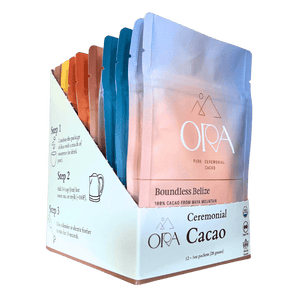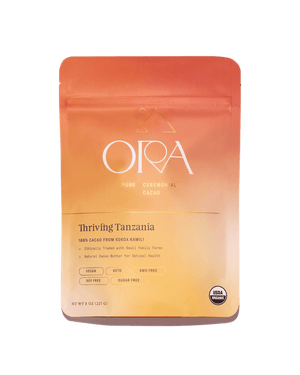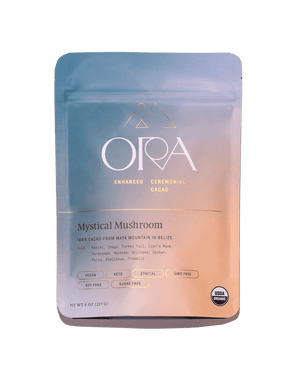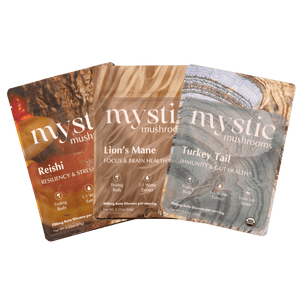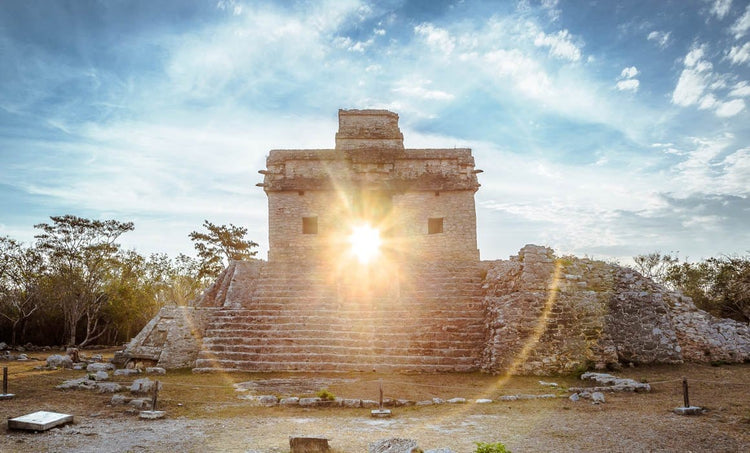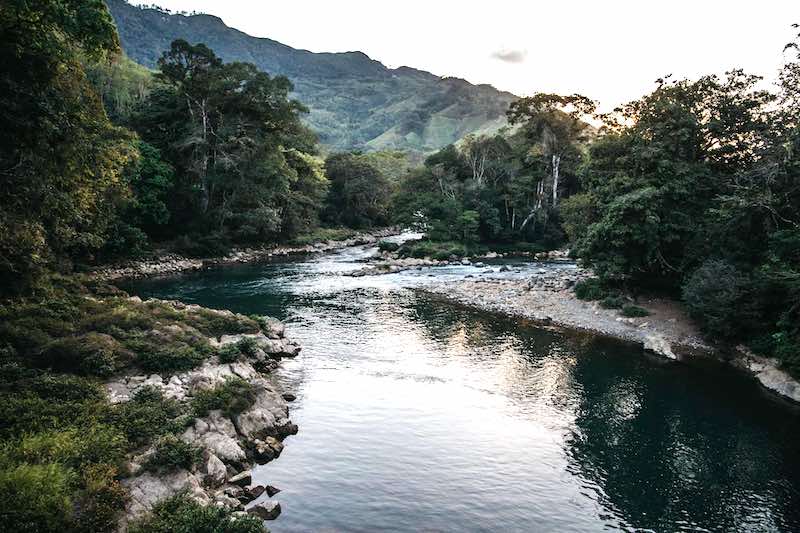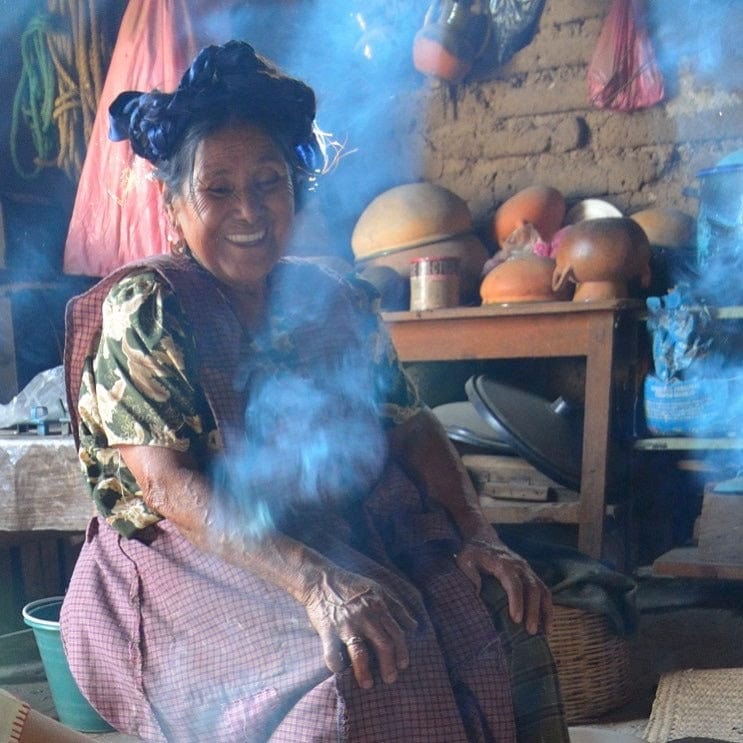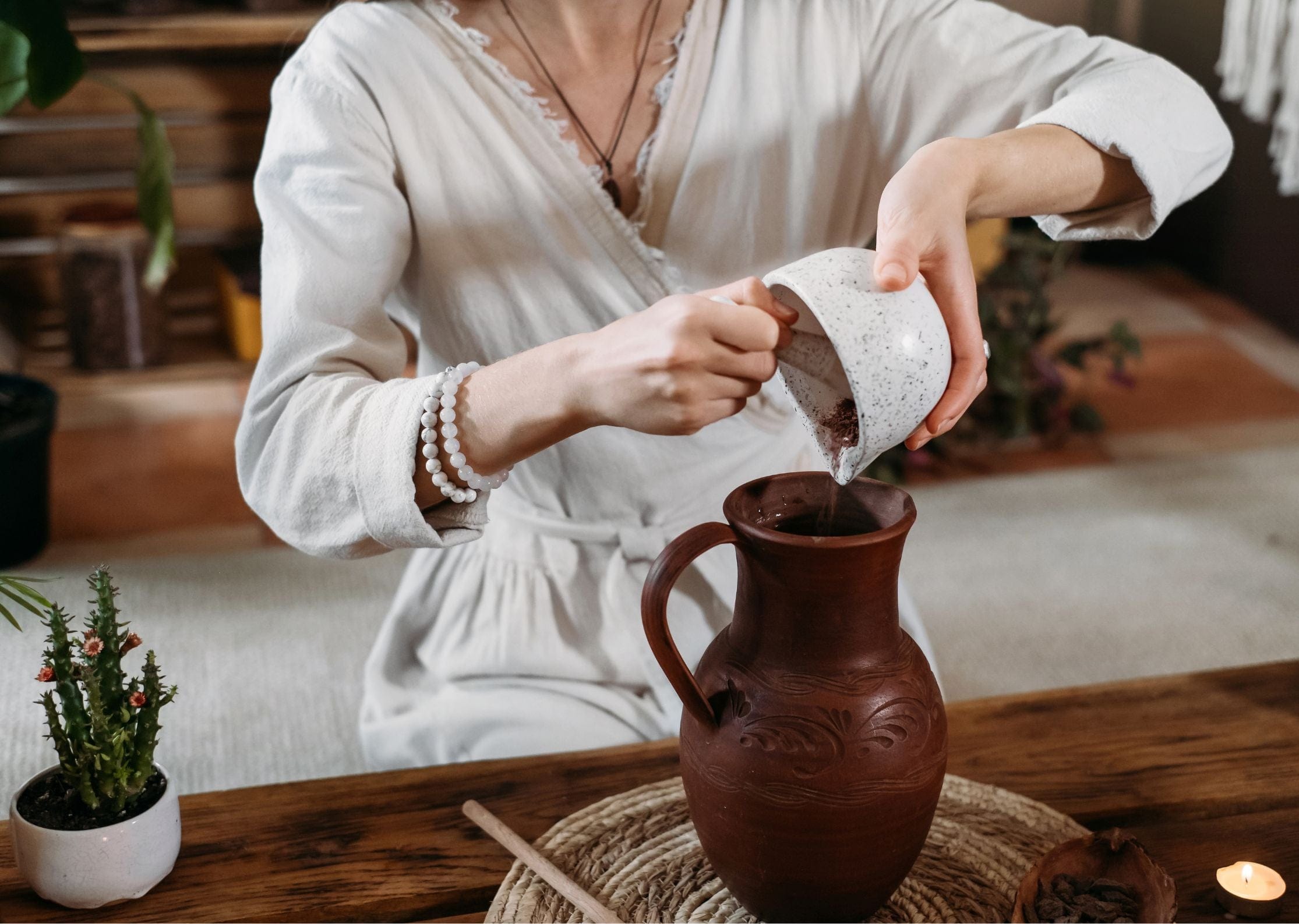The cacao growing communities that we work in have all been substantially impacted by the colonization of the Americas beginning in the 1500s and continuing to this day. As responsible stewards of ceremonial cacao, understanding and sharing this history is a crucial part of our work. We’ll provide a framework here for colonization, what that looks like for cacao, what steps can be taken to decolonize, and why we believe ceremonial cacao is a crucial tool for restoring respect.
Navigate this article
What is colonization?
To be colonized means to be disconnected and disintegrated from ancestry and land-based knowledge.
Colonization is supported by supremacy and capitalism. Three layers of supremacy are commonly found today:
White supremacy | This legitimizes slavery and provide cheap labor for capitalism. It also legitimizes genocide and support resource grabbing for capitalism
Human supremacy | This legitimizes ecocide (ecological destruction) and the exploitation of resources.
Male supremacy and patriarchy | this legitimizes feticide, domestic violence, and child abuse. This creates “invisible labor” that is not compensated for in capitalism.
The results of colonization include trauma, chronic stress, environmental degradation, fractured food systems, countless diseases, and many other symptoms.
How was cacao colonized?
Cacao was colonized with the “colonial conquest” of the Americas in the 1500s, when the three above mentioned systems of supremacy were imposed upon the indigenous inhabitants of the Americas and over 99% of the population was eradicated by disease and violence in a massive cultural genocide. So much wisdom, culture, and spiritual practice was lost.
Rainforest ecosystems became managed as a “Resource” rather than a “living system”
and cacao became one of many rainforest products extracted for the benefit of the colonizers. Widespread deforestation, species extinction, and loss of native strains continues to this day.
All consideration of cacao as a sacred plant was lost on the colonizers. Instead, white supremacy justified slave labor, poverty level wages paid to farmers, all to get more cacao, cheaper.
Political interference by Western & European interests has caused major suffering and corruption in Central & South American political systems. Major social movements have been undermined by foreign interests, inhibiting the thriving of the indigenous populations.
To this day cacao is still grown in the context of an extractive capitalist system in countries where political and economic realities are determined by the descendants of the original colonizers, and the ancestry and land based knowledge of cacao is largely disregarded.
For full details on the colonization of central and south America, we recommend reading: The Open Veins of Latin America.
How do we deconolize cacao?
Given such an atrocious history that the “modern West” has benefitted from and continues to benefit from, how is it possible to source cacao ethically? We certainly cannot fix all these grievances. But we can lead in our role of this multi-generational work to restore balance.
The very first step to de-colonizing cacao is acknowledging and grieving the colonization of cacao and the systematic oppression and exploitation of cacao communities and indigenous culture. Not taking the time to educate, acknowledge, and grieve, especially when in a position of privilege, is acting in complicity with the systems of domination that perpetuate this exploitation. It’s true, there is so much to grieve here and the atrocities continue to this day. But grief is an expression of connection and care, and ultimately will fuel action.
The action step to de-colonizing cacao can take many forms. It ultimately is going through an intergenerational healing and reconciliation process to restore the respect that was lost when the colonizing mechanisms of supremacy and capitalism were imposed.
As a significant cacao purchaser, Ora Cacao can leverage the aggregate demand from all of our customers to rehumanize and decommodify the supply chain. We purchase using a Direct Trade model (learn more here), which pays cacao prices far higher than the industry average, as the “capitalist way” of indicating respect. This is just the beginning though. We also purchase only from small cacao farmers to de-aggregate wealth, and to support regional economies where farmers sell wet cacao to high quality central fermenteries that add additional value before export. When you purchase from Ora Cacao you support this supply chain disruption!
We believe to truly decolonize cacao requires far more though - it also requires showing respect in non-capitalist ways.
This can be done by honoring and treating cacao as a sacred plant, as it was done in pre-colonial times. This is a practice that can be done on the individual level by practicing relationship to ceremonial cacao rather than consumerism through chocolate bars.
Cacao ceremony can also extend into the level of corporations, non profits, and governments, and we are seeing and supporting this work happening.
Furthermore, we must end all unsustainable deforestation and mineral exploitation. These extractive practices degrade the tropical ecosystem that serves as the genetic reservoir for cacao and home for indigenous communities that have tremendous knowledge of the rainforest which cacao calls home.
We must also respect indigenous self determination and ancestral indigenous claims to territory. The true wisdom for rainforest stewardship and historical knowledge about cacao lies with the very people who ancestrally lived where cacao grows, and their way of life and cosmo-visions are critically threatened.
To support this type of work, we highly recommend supporting any of a number of organizations doing excellent work with the peoples of the rainforest. These partners include: Rainforest Action Network, Amazon Watch, Pachamama Alliance, and Amazon Frontlines.
In a broader context, de-colonizing cacao can not be done in isolation of de-colonizing many of the other systems we live within. In essence, we are working in solidarity with many movements that are restoring sacred relationships with the earth as a living being, and stepping into the regeneration and thriving of all life on Planet Earth with human stewardship.
Restoring Respect with Ceremonial Cacao
We believe ceremonial cacao is the only way forward to restore a sacred relationship with cacao that creates lasting respect with the peoples that steward it.
In cacao ceremonies, we access the wisdom and connection that leads us to protect this planet. It leads us to value cacao that is grown in a regenerative sustainable cycle that benefits the farmers and their communities, the cacao trees, and the natural ecosystems of our planet.
Supporting a new supply chain that is based on personal relationships with our farming partners, knowing exactly how they grow and harvest their cacao, creates personal pride in the quality of product along the entire supply chain from farm to cup.
By paying higher prices to support organic farming practices, the farmers can avoid chemical-laden pesticides and farm using agroforestry principles that support healthy soil cultivation and thriving ecosystems. This creates a healthier, lush environment for the farming communities to grow food, and live in.
In a nutshell, this is a heart-led endeavor, which is the only way to go when working with the healing properties of ceremonial cacao.

